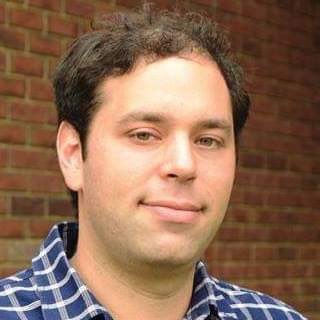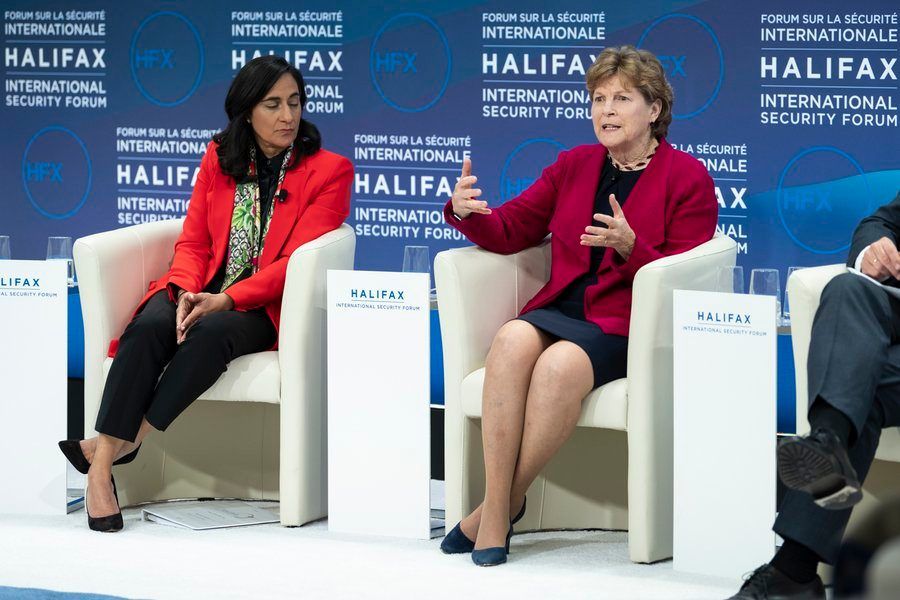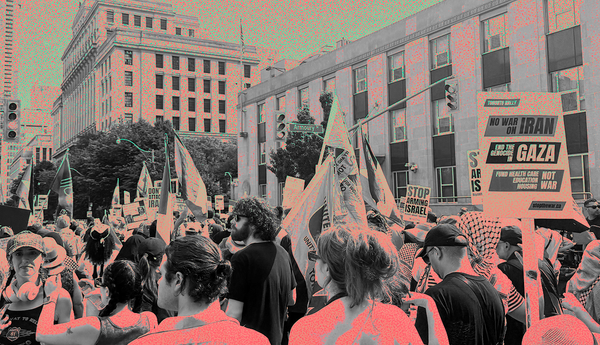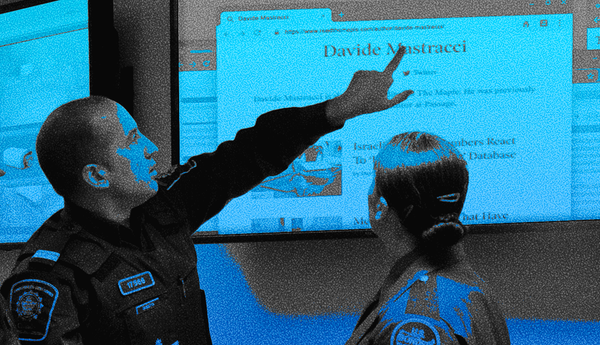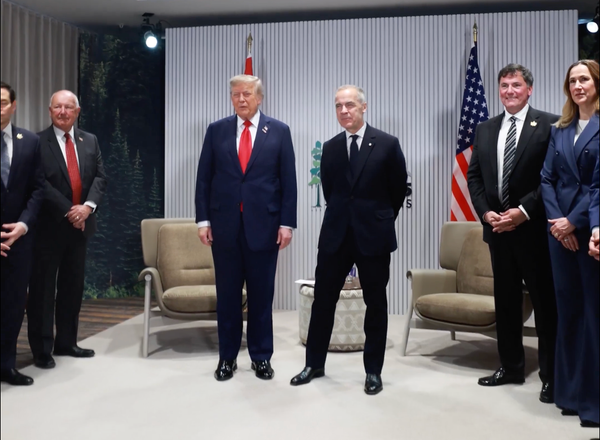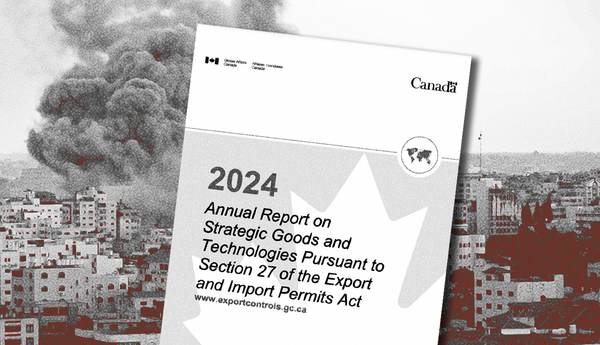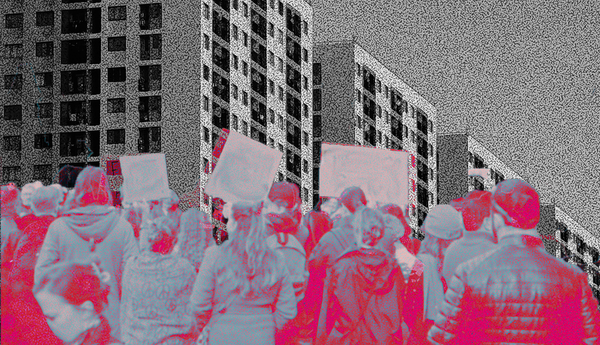The war in Ukraine was front and centre as journalists, politicians, military leaders and businesspeople from around the world gathered in Nova Scotia from Nov. 18 - 20 for the annual Halifax International Security Forum (HFX).
Despite its name and location, the HFX organization is based in Washington, D.C. The forum was founded in 2009 by the German Marshall Fund think tank, with a stated mission of “strengthening strategic cooperation among democratic nations.”
Sponsors of this year’s event included the Canadian Association of Defence and Security Industries (CADSI), Amazon Web Services, military contractor General Atomics Aeronautical Systems, and the Konrad Adenauer Foundation, a right-leaning German political organization associated with the Christian Democratic Union.
The morning of Nov. 18, before the conference commenced, Defence Minister Anita Anand announced a proposal for Halifax to be the location of a new NATO “innovation” hub.
“The goal of the hub would be to promote co-operation between NATO's military members and the technology sector, including tech startups and academic researchers,” The Canadian Press reported.
The proposed hub hasn’t yet been officially approved by NATO, but is slated to open in 2025. It will be oriented around technology rather than conventional weapons. Discussions around the role of tech in geopolitical conflicts were a prominent feature of this year's HFX.
The structure of HFX, which was hosted by Anand, consisted of a series of plenary panels throughout the three days which were also broadcast online.
It also included pre-recorded remarks from Ukrainian President Volodymyr Zelensky and the awarding of a John McCain Prize for Leadership in Public Service to all the women of Ukraine. The award was collected by Zelensky’s wife, Olena Zelenska.
For those attending in person, there was also a series of off-the-record gatherings, with titles such as “TikTok, Tick Tock: Treasuring Taiwan’s Time,” “Decoupling: Russia, Yes. China, Next,” “New NATO: Never Against Treaty Organization” and “Nuclear War: 60 Years On, Preventing (While Preparing for) the Unimaginable.”
Opening remarks
HFX founding president Peter Van Praagh set the tone for the event in his opening remarks, urging attendees to remember the aftermath of the Sept. 11, 2001 attacks on the World Trade Center.
He recalled how last year’s forum occurred in the aftermath of the U.S.’ disastrous withdrawal from Afghanistan.
The U.S., according to Van Praagh, “discarded the hopes and dreams of so many Afghans who for 20 years believed the American and Western presence guaranteed for them a secure, and perhaps even modern, future.”
He claimed no particular country was to blame for “getting to that low place,” but said the chaotic withdrawal was the “culmination of 20 years of good intentions and bad results.” According to the Watson Institute’s “Costs of War” project, the U.S.’ post-9/11 wars – including Afghanistan – resulted in more than 387,000 civilian deaths.
While the withdrawal from Afghanistan marked the end of what Van Praagh called a “tragic era,” the Russian invasion of Ukraine on Feb. 24, 2022 marked the beginning of a new era, he suggested. The ongoing conflict, which has resulted in at least 16,000 civilian casualties, allegations of war crimes and other violations of humanitarian law, attacks on civilian infrastructure (both inside and outside the conflict zone), as well as spillover into NATO member Poland, could nonetheless signal the "most positive era yet for freedom and democracy,” Van Praagh said.
“It’s not often you get a do-over, a second opportunity, a chance to correct past mistakes, but thanks to Ukraine’s resolve, that is what we now have.”
Minister Anand presented a less sanguine perspective on the state of the world in her opening remarks.
“No matter how you look at it, our whole world is growing darker,” Anand said, adding that the “rules-based international order” — one of the most commonly used phrases over the weekend — is under attack from “emboldened authoritarian regimes."
She boasted of the more than $1 billion in military aid Canada has provided to Ukraine, including 39 “armoured combat support vehicles made right here in Canada,” as well as M777 howitzers, artillery ammunition, anti-tank weapons and high-resolution drone cameras.
Anand also emphasized that Canadian forces have trained more than 34,000 Ukrainian Armed Forces members since 2015 through Operation Unifier. According to reporting from David Pugliese at the Ottawa Citizen, Christy Somos at CTV News and Alex Cosh at The Maple, this includes a number of far-right extremists.
In his brief pre-recorded remarks, which were introduced by CBC News chief correspondent Adrienne Arsenault, President Zelensky said the question isn’t just “how to end the Russian war,” but “how to restore a real and just peace” in the region.
Zelensky lambasted Russia’s calls for a truce, which he called a “respite to regain strength” before continuing its invasion.
“Immoral compromises will lead to new blood,” he said, calling for the “complete demolition of Russian aggression.” Until then, any talk of peace is meaningless, Zelensky argued.
Where is the security?
The weekend’s first panel, dubbed “And So, Where is the Security?” was moderated by Munk School of Global Affairs Prof. Janice Stein, whom Van Praagh praised as a “Canadian icon.” Stein sits on the HFX board of directors.
The plenary included Minister Anand, Estonian President Alar Karis, New Hampshire Sen. Jeanne Shaheen and World Uyghur Congress president Dolkun Isa.
Stein kicked off the discussion by asking Karis what he, as the leader of a nation close to Ukraine, would tell Zelensky if he was in attendance.
Karis called the war in Ukraine a “litmus test” for whether democratic countries are willing to “fight for our democratic principles,” and whether authoritarian states will be able to get away with invading their neighbours.
“We really must answer the question of what kind of world we want to live in,” he said. Western ally and trading partner Saudi Arabia, whose bombing campaign in neighbouring Yemen has directly and indirectly killed at least 377,000, was not mentioned during the panel.
Stein asked Shaheen what U.S. policy towards Ukraine will be now that the Republicans have taken control of the House of Representatives with a slim majority.
Shaheen responded that there is still “strong bipartisan support” for the U.S. government’s decision to continue sending arms to Ukraine.
“This war is about a lot more than whether Ukraine is able to maintain [its] territorial integrity,” she suggested in agreement with Karis. It’s about defending the “international world order,” Shaheen added.
What is Canada’s military strategy going to be in the near future, Stein asked Anand.
The minister said in order to be effective at home and abroad, everyone in the military must feel “safe, respected and protected,” in apparent reference to the sexual misconduct scandal that has rocked the Canadian Armed Forces (CAF) over the past year.
“That will provide a foundation from a moral and operational standpoint for us to execute and execute well,” Anand said.
The impact outside Europe
Stein asked Isa what the implications of the war are for persecuted minorities in east Asia.
Citing China’s relationship with Russia, he said China is “exporting its repressive government policies to other countries,” calling China’s Belt and Road Initiative a “territorial expansion project.”
The Belt and Road Initiative is a global infrastructure project designed to integrate China’s economy with those of other nations in the developing world.
Later in the conversation, Shaheen similarly decried Chinese influence in the developing world, specifically in Africa and Latin America. “We need to come up with a strategy in the Western world for how we’re going to counter that,” she said, calling Chinese influence an “economic threat.”
Shaheen attributed this to a lack of Western wherewithal. “Haiti is erupting into chaos and we don’t have leadership to go in with a force that can help provide stability,” she cited as an example.
Prime Minister Justin Trudeau has ruled out Canadian intervention in Haiti unless there is a consensus among Haitian political leaders that such an intervention would be welcomed. As previously reported by The Maple, experts warn that a military intervention is no solution to the problems Haiti faces, and Haitian protesters have come out in force against any talk of such an intervention.
During the Q&A portion of the panel, a member of the audience asked if the panelists thought the war in Ukraine could have been avoided, which Stein called a “very hard and complicated question.”
Shaheen responded by asserting that due to “megalomaniacs” like Russian President Vladimir Putin and Chinese President Xi Jinping, “it’s going to be very difficult to prevent wars.”
The comments from Shaheen echoed similar remarks made earlier this year by Canada’s Ambassador to Ukraine, Larisa Galadza, who claimed nothing could have prevented Russia’s invasion of Ukraine.
That suggestion was contested by experts, including the University of Ottawa’s Ivan Katchanovski, who argued that “an agreement in which Ukraine promised to remain a neutral country and the fulfilment of the Minsk accords” could have prevented war.
Preparing for the rough winter ahead
The second and final panel of the first day was titled, “Cold Weather, High Prices, Long War: Finding Our Winter Resilience."
It was moderated by PBS NewsHour correspondent Nick Schifrin, and included the Dutch chair of NATO’s military committee Admiral Rob Bauer, New York Sen. Kirsten Gillibrand, former Croatian president Kolinda Grabar-Kitarović and Ukrainian deputy prime minister for European and Euro-Atlantic integration Olha Vitaliiivna Stefanishyna.
Stefanishyna said “closing the sky” — a common euphemism for imposing a no-fly zone, which experts say would significantly increase the risk of nuclear confrontation — would prevent Russian missile attacks and help Ukraine get through the winter ahead.
Later in the conversation, she said Ukraine is fully willing to negotiate, but not with Putin, unless he agrees to “accountability … for the crimes committed,” full withdrawal from Ukrainian territory and compensation to Ukraine for its war losses.
The Washington Post reported earlier this month that Biden administration officials have privately asked Zelensky to show more openness to negotiating with Russia amid maximalist remarks like those made by Stefanishyna. In particular, calls to recapture Crimea, which Russia annexed in 2014 and reportedly views “differently” to other occupied territories, are seen as fraught with risk for broader escalation.
“We hope it won’t take too many lives of Ukrainians and too much time for us to form [an] understanding of what victory [looks like] and what comes after,” Stefanishyna added at HFX.
Schifrin asked Admiral Bauer if the West is “where it needs to be” in terms of supplying the Ukrainian military. Bauer said Western countries didn’t do enough to prepare Ukraine for the winter. “We didn’t think there would be a winter,” he said.
NATO members must figure out how to ramp up military production fast, Bauer argued, adding that in order to do so, the defence industry needs to stop thinking in terms of profits but in terms of what he characterized as its duty to uphold the “international rules-based order.”
Major arms manufacturers – including Lockheed Martin and Raytheon – have enjoyed rising stock prices since the beginning of the invasion, as dealers continue to scramble to supply and replenish donated materiel.
Later in the conversation, Admiral Bauer said the “Russians have the same problems as we have” in terms of depleted weapons stockpiles.
Getting ready for a ‘long haul’
Does the U.S. need to develop a “wartime economy” to ramp up defence production, Schifrin asked Sen. Gillibrand, who sits on the Senate Armed Services Committee and Intelligence Committee.
Gillibrand said she doesn’t think the U.S. does, but that European countries ought to. “Europe was not spending on its military,” Gillibrand claimed. “They thought we were post-conflict.” In fact, several European countries – Greece, the United Kingdom, Poland, Lithuania, Croatia, Latvia, Estonia and Slovakia — all spend at or above the two per cent of GDP target defence spending demanded by NATO, with Greece spending a higher proportion of GDP on its military than the U.S.
However, NATO’s target has been criticized as “arbitrary,” with arms monitoring group Project Ploughshares noting in an interview with The Maple last month that despite global arms expenditures reaching an all-time high in 2021, further conflict has not been avoided.
Nonetheless, Gillibrand said the Russian invasion served as a wakeup call to Europe, and called Putin an “authoritarian dictator who lacks mental stability.”
Schifrin asked former president Grabar-Kitarović if Europe is prepared to “accept some pain in order to punish Russia for this war,” citing its upcoming ban on Russian oil imports, which is set to come into full force in February.
“Certainly, I would hope so,” Grabar-Kitarović said. “Speaking personally, people in Ukraine are losing lives, so we should be able and capable of losing a little bit of our comfort in order to stand up to Russia.” According to analysis by Reuters in August, soaring fuel costs caused by the conflict are forcing some low-income residents in Europe to choose between heating their homes and eating, with government assistance payments failing to provide adequate support.
Grabar-Kitarović said we should all prepare for a “long haul,” saying she’s more concerned about how the winter will impact the war next year, when energy supplies are depleted, than today.
Given the final world, Stefanishyna argued that a Ukrainian victory is “the only answer.”
“Plan A is to win, to take all the possible ethical and [un]ethical decisions, nice or not nice ones, to make sure we’re capable of defending ourselves as a country,” she said. “We should not think of Plan B, because we are strong here.”
Read part two, which focuses on the conference’s second day, tomorrow.
Jeremy Appel is a journalist based in Calgary, and his work has appeared in The Sprawl, CBC Calgary, Jacobin, Passage and the Forward. He also co-hosts the Forgotten Corner and Big Shiny Takes podcasts.
Go deeper
Here are a few stories from our archive that expand on today's story
Canada Exported More Than $132 Million in Combat Vehicles to Saudi Arabia in August
It’s business as usual for Canadian military sales to Saudi Arabia, despite the theocratic kingdom’s horrific human rights record and an apparent diplomatic spat with Canada.
Military Intervention Is No Solution to Violence in Haiti, Experts Warn
“The idea that Haiti needs an international intervention to deal with street gangs is ridiculous and racist and completely rejected by Haitians.”
Ministers Promote Canadian War Industry at International Show
Attendees at the 2022 Farnborough International Airshow (FIA), including two Canadian trade ministers, were sheltered from the United Kingdom's sweltering heat wave in July as they mingled with arms dealers and buyers from around the world.
Top Maple story this week
Why Researchers Are Questioning Danielle Smith’s Claimed Family History
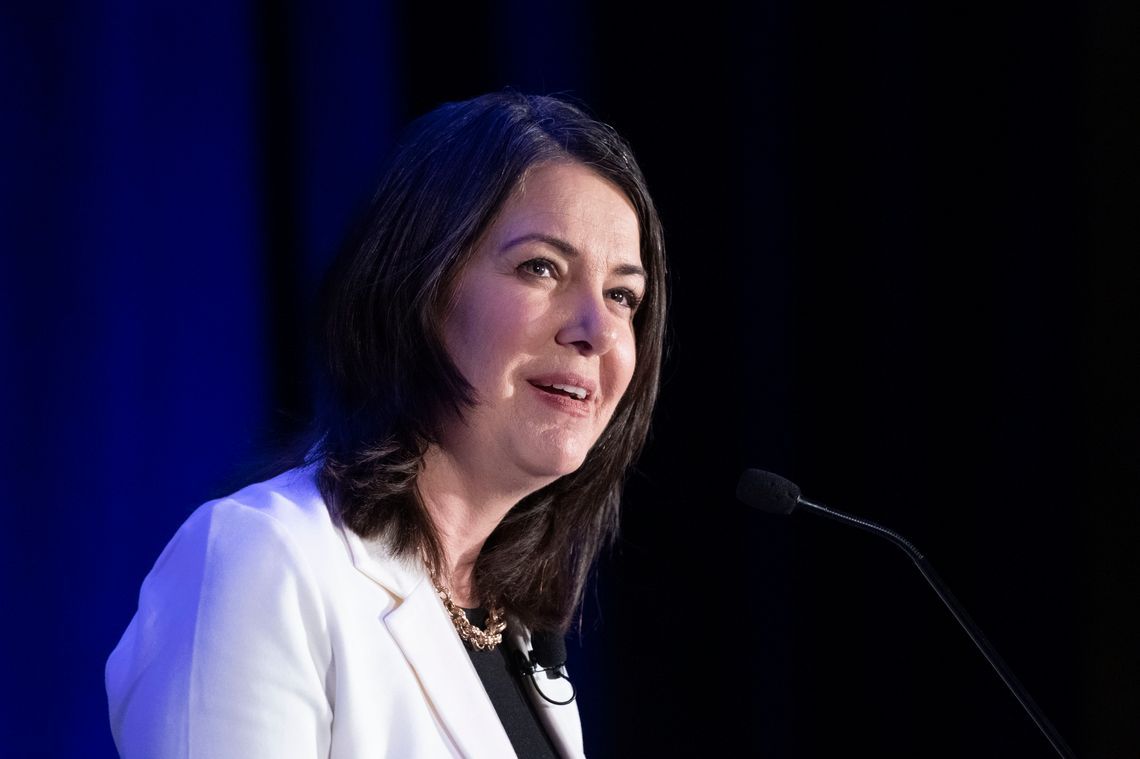
Alberta Premier Danielle Smith’s claims of having Cherokee heritage were called into question by researchers last week. It turns out this is not the only aspect of her telling of her family’s past that has been subject to scrutiny.
Catch up on our latest stories
- Parliamentary Human Rights Report Excludes Mention of Shireen Abu Akleh.
- Canadian Military Makes Unsubstantiated Claim About Report Exposing Training of Ukrainian Far-Right Extremists.
- Podcast: Did CUPE Make The Right Call in Ontario?

